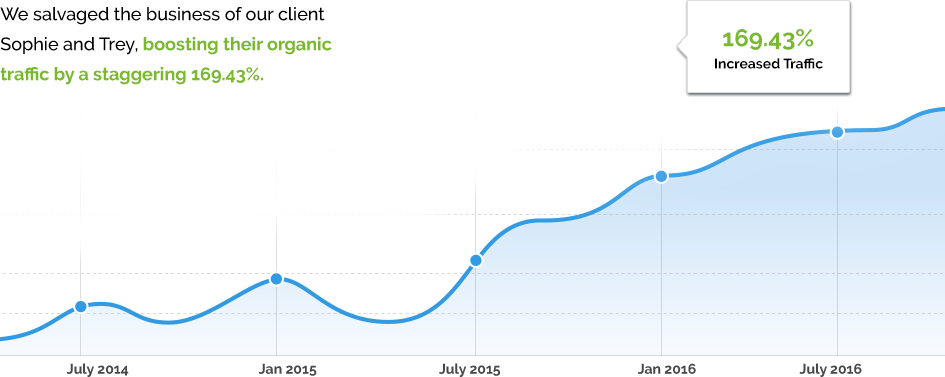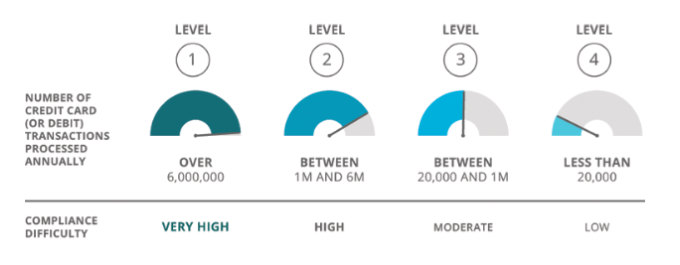
Deciding on a content management system for your e-commerce website might feel like looking for a needle in the haystack. With plenty of options out there, businesspeople are bound to get confused about their choices vs. the requirements of their business. E-commerce is a fastly-growing field in the US and abroad. If you are a business owner looking to spread your wings on the internet landscape, you should perform research on how your niche is currently performing in the digital world.
The Atlantic called 2017 a year of ‘meltdown’ for traditional retail. There were nine bankruptcies of major brands. The reason behind this closure is the acceptance of e-commerce as the preferred mode of shopping in the US. Users prefer to click and buy products from the ease of their homes, rather than making it to the nearest brick and mortar store.
2017 was a year of Facebook advertising. Users were stirred towards the site for more options in their buying journey. However, the costs for ads are now going up on Facebook. The website has made many e-commerce businesses into millionaires, but the cost of ads is a little hard to manage. It has led to the search for new, robust platforms where sellers can set up their portals with a customized experience.
According to BigCommerce, the top trends in e-commerce in 2018 are:
- Personalization
- Customer engagement
- Content types and SEO
- Mobile optimization
- Social media campaigns
- Data-driven content strategy
- Email marketing
- PR
- Pricing
The new model of shopping provided by e-commerce websites is what pulls more customers to the web. More than 80 percent customers perform online research before making a purchase. Websites are the king when it comes to shopping research, but social media platforms also pay their part in urging consumers to buy a product or service.
While the research is being performed online by your customers, you should be aware of the fact that setting up an e-commerce site is not going to be easy. Your competitors, the e-commerce giants, are a mile ahead of you in the game. It gives you the considerable advantage to bring something unique to the market.

The popular clothing brand Sophie and Trey increased their organic traffic by a staggering 169.43% when they performed data-driven research for content. Their unique outlook towards gathering digital traffic not only grew their clothing store but also got them featured on Huffington Post, Orlando Magazine and BuzzFeed.
Let’s look at the things you must keep in mind when looking for a content management platform for your e-commerce business:
Scalability
Growing your e-commerce business requires a sound strategy from the very beginning. You need a solution which meets user demands and provides flexibility to their online shopping habits. It will seem like a good option to go for the most affordable solution presented to you at a time, but don’t follow your instinct in this case. You need to keep plans in consideration when you choose an e-commerce platform. Even if you go for a cheaper platform, you will have to buy more storage or more coverage and pay extra fees.
Search Engine Watch advises:
Almost all platforms will have a monthly fee. Depending on the type of platform you get (self-hosted vs. hosted) the costs may vary. You should also consider the processing fees that will be associated with the platform. Don’t sacrifice the things you’ll definitely need for a cheaper price.
It is important to choose a platform which can expand its expertise as per your demand. The best platforms give you ownership and ask you to choose a platform that works. If you are eying a platform, but it has limitations in bandwidth, it should raise a red flag. Open-source solutions are better because they give you the chance to create a customized store on the budget you prefer.
Don’t think of yourself as a small store and choose a cheaper solution. Look at yourself as a growing e-commerce store from day one, so you can choose a platform that helps you become one. Budget is the first and foremost consideration when making important business decisions. Nowadays, most e-commerce platforms have a monthly fee which can be affordable when starting your store online.
Functionality
Start your search from platforms which are easy to use for an e-commerce business owner. Administrative tools, upgrade options and data management should be simple with your chosen e-commerce platform. Ideally, your platform must have an easy content management system, so you can learn it and get to work.
Responsiveness is a key feature required by e-commerce apps. Users don’t like to wait while the pages load. They will abandon the site or leave the checkout if the pages don’t load fast. The user will expect a site to load in under two seconds, or it is an aborted mission. It also applies to users accessing your website from mobile platforms. Mobile users are growing in number, and you must keep them in mind when choosing your e-commerce platform.
A website which is not mobile-friendly or user-friendly will receive higher bounce rates and lower conversion rates. SEO rankings are also influenced by mobile optimization. Business Insider predicts that mobile commerce will increase to account for nearly half of dollars spent by 2020.
Let’s take the example of Magento.
It is one of the world’s fastest e-commerce platforms. It is built for mobile e-commerce and high functionality. The option of adding third-party apps to the platform is super easy. It supports all major payment gateways in the world. Magento claims to take your e-commerce game to the next level by providing flexibility, integration, and variety of features.
When you have a store built on a robust platform, your users will only get the best out of your online store. It will lead to lesser complaints and more conversions.
Now let’s talk about the user interface. The interface of your site must be smooth and straightforward. It shouldn’t take much work to choose a product, add it to cart and pass through check out.
Security
It is important to have a secure site that protects all your user data. The platform you choose will have a huge impact on the overall security of the site. In the case of e-commerce businesses, the transactions will go through the website and then reach the payment gateway. You have to ensure that these transactions are secured. Otherwise, the customers will not prefer to do business with your store.
Choose a platform which works in compliance with PCI standards.
PCI Standard
According to BigCommerce:
The PCI Security Standards Council (PCI SSC) defines a series of specific Data Security Standards (DSS) that are relevant to all merchants who accept credit cards, regardless of their revenue and annual credit card transaction volumes.
 Source: Search Engine Watch
Source: Search Engine Watch
According to PCI standards, you should never let personal information of customers be stored on the personal server. Any sensitive information put into your website should also be encrypted by the most modern security system available, so it is harder to decode for cyber thieves.
Some e-commerce businesses add an extra layer of security to their website by announcing constant monitoring for their clients. Fraud protection and denial of service should also be your priority. It is your choice if you want to pay the extra amount for these services, but as an e-commerce business owner, it is good that you work with a platform that supports such initiatives.
However, choosing third-party security services will end up costing you more, so it is better to go with a platform which already has these features built into the system.
Content Management
This is an obvious thing to do when you are talking about an e-commerce platform, but many times this phase goes underplanned. Start mapping out the content needs of your business to decide which element resonates best for your content distribution. This research will enable you to create a content plan and choose a platform which supports the distribution of content.
Make a list of your content team and distribute roles to these people so you can start brainstorming. Who will head the team? Who will create designs? Who is going to do the research? Note down all parts of your content creation journey.
Make a list of different types of content and how you will manage its creation. E-commerce sites need to be quick and sharp about product videos, photos, and descriptions.
Outline the pages which will have a copy. Images, rich media, and snippets are also an important thing when generating content for an e-commerce site. SEO is very important, so you have to choose a platform which makes indexing easy for search engines.
Landing pages should be optimized, and for that, you need top-notch content on the landing pages with a clear call to action. Define CSS file requests which you will get from the platform.
When you outline these key details, you will be able to come up with a wholesome content plan for your e-commerce websites. If you collaborate with other brands to display their products on your site, inquire about the ownership of that content. Dedicate timeframes which will be taken into account during the production of those content pieces.
Impact of Content
You need to have a system which measures the impact of your content online. This data-driven content strategy will get the best out of your customers. You will know what to post and what to refrain from. Users engage with the content they like, so you can give them the pieces of content they love engaging with.
Let’s look at the creative content strategy of Grazia Shop, a clothing company. Their e-commerce website is loaded with colorful imagery which is visually appealing. They have great copy, short videos and Q&A sections to engage audience on the store. When you browse their shop, it feels more like talking to a fashion expert than looking at the website of a clothing store.
 Source: Ometria
Source: Ometria
This sounds very straightforward, but it becomes complicated as you near the launch of your site. You are bound to run into some rough patches during production, so plan. Sit with your business owners, key stakeholders and developers to be on the same page. Choose the platform which suits these needs in the best and most flexible way.
Verdict
Have you considered the limitations of your products or services while selling online?
If you have limited inventory or you are not looking for long-term plans, then you may go with an affordable option in content management systems which are providing security, flexibility, and scalability. The choice of your CMS majorly depends on your business field.
The features mentioned above are crucial in deciding the content management platform for your business. E-commerce is a constantly evolving field, and it borrows from the technology around us. Drones and artificial intelligence technology have already seeped into the e-commerce industry. You must collaborate with a platform which allows you to expand while keeping the base costs same.
If you can’t decide on a content management system based on data-driven techniques, let us know.
Our team of active e-commerce experts will be happy to help you out on your hunt for the best platform. However, we can’t advise you better until you give us a complete rundown of your business details. Every platform for e-commerce is chosen to complement the business. Just like we can’t choose your next holiday destination, we can’t choose the platform without your help.
What are the things you included in your search for the best content management system? If you would like to provide some extra tips, mention them in the comments section below.